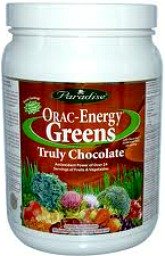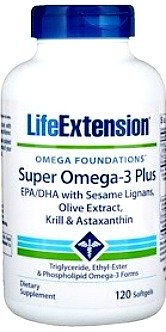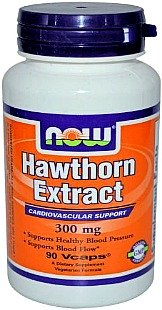Arrhythmia: Causes, Symptoms, Diagnosis, Treatment and Prognosis
Arrhythmia symptoms are the first warning signs of heart disease. Although even healthy people can sometimes notice a mild change in their heart beat, if it happens constantly, then you have a problem. I didn't know know I have it, until I went through diagnosis process.
There are several possible causes of arrhythmia which includes electrolyte imbalances, heart attack, changes in your heart function or the size of the heart muscle as well as high blood pressure, diabetes, stress, some supplements and medications, coffee, smoking, alcohol or high blood lipid levels which can clog coronary arteries and cause arrhythmia.
Since, it is very difficult to detect it without proper diagnosis, you should pay attention to the following symptoms of arrhythmia. However, if you have a blood pressure measuring device, it can help you asses your heart rate and detect irregular heart rhythms.
ARRHYTHMIA SYMPTOMS
They are:
TYPES OF ARRHYTHMIA
While arrhythmia is by itself bad, there are a couple of types of it, from which some are worse than others. There are:
DIAGNOSIS
There are many test which can help in diagnosis of arrhythmia. This includes holter monitor, stress test, electrocardiogram, echocardiogram, cardiac catheterization and tilt table test. The most often used tests are holter monitor, electrocardiogram and stress test to see how does the heart work under when exposed to stress. They are simple, cheap, safe, effective and easy to do.
TREATMENT
Milder cases of arrhythmia do not require any treatment while others require only lifestyle changes. However, when needed the doctor can prescribe you antiarrhythmic drugs which can speed up slow heartbeat while others can be used to slow down fast heartbeat, depending on your condition. Other medications which can be used in treatment, areanticoagulant or antiplatelet drugs such as heparin, warfarin and aspirin.
Besides medications, there are electrical cardioversion, ablation therapy, vagal maneuvers as well as pacemaker, defibrillator and surgery.
Electrical cardioversion is painless electrical shock which is used to reset heart to its regular rhythm. Since you are given drugs to relax, there is no pain involved.
Ablation therapy is done with the use of catheters which are guided through the blood vessels to the heart and positioned on the areas for which your doctor believes are the source of arrhythmia. Electrodes at the catheter tips are heated with radiofrequency energy. However, the tips of the catheters can also be cooled thereby freezing the tissue. These two methods destroys small parts of the heart tissue causing the irregular heartbeats by blocking the electrical pathways causing the condition. The methods usually prevents irregular heartbeats.
Vagal maneuvers is a procedure that works by affecting the vagus nerves in the brain which control the heartbeat, often causing slow heart rate. It is preformed by holding the breath and straining, coughing or by diving your face in cold water. Procedure is usually used in cases of supraventricular tachycardia. However, other procedures such as deep breathing, can also be effective. Before doing any of them, consult with your doctor.
Pacemaker is another highly effective option for treating arrhythmia. It is a device which corrects the deviations of your own natural heart pacemaker, whether heartbeat is too slow or too fast due to irregular electrical impulses activity of your natural heart pacemaker.
Implantable Defibrillator is a device similar to pacemaker. It is primarily used when a person is at high risk of developing a dangerously fast or quivering heartbeat, in the lower half of the heart, known as ventricular tachycardia or ventricle fibrillation. On the other hand, it can also increase slow heart rhythm. It works by sending low or high energy shocks, in order to reset the heart to its normal rhythm.
There are couple of surgeries available for treating the condition but only when other options are ineffective or lacking. This includes bypass surgery, removing the bulge or aneurysm which may be causing arrhythmia as well as maze procedure. Maze procedure is a surgery whose goal is to cause a scar tissue which is placed carefully. The scar tissue blocks the pathway of electrical signals in one way and directs it to other way, the right way. This prevents irregular heartbeat and causes the heart to work efficiently. Dispite its high success rate, it is preformed rarely, since it is open heart surgery which poses risk of its own.
PROGNOSIS
Prognosis depends on your condition. The worst it is, more difficult will be to recover from it and the longer recovery process will be. In the end, complete recovery is possible, at least, in most cases. I had it and now I am heart disease free and I no longer have arrhythmia.
CONCLUSION
In order to overcome it, you will have to be dedicated and patient. This primarily applies for your diet, exercise regime as well as healthy lifestyle in general. Your condition will improve over time, if you follow this guidelines.
It would be the best to have one or two heart checkups, every year, so you can monitor your progress. Also, check your thyroid hormones and estrogen since they can affect the heart rhythm and cause arrhythmia.
- Heart Healthy Diet: Simple Tips and Guidelines
- Learn everything you need to know about heart healthy diet and find the right one for you. Implement few simple tips for immediate benefits.
- Heart Healthy Foods: How to Get the Most from Them
- Heart healthy foods can improve cardiovascular system function. Foods good for the heart are bursting with vitamins, minerals and rejuvenating phytochemicals.
- Herbs for the Heart and Cardiovascular System
- You have heard for hawthorn and garlic but there are few other herbs for the heart which can help in treating heart disease, naturally.
- The Best Heart Health Supplements
- Besides fish oil, there are several heart health supplements which can be useful. This includes Coenzyme Q10, Salicin, vitamin D3 and few others.
- Heart Healthy Spices
- Although there are many heart healthy spices out there, each of them can help prevent and treat heart disease in its own way, thanks to different types of flavonoids in these heart spices.
- Stress and Heart Disease: How are They Connected
- Stress and heart disease are closely related. In order to decrease the risk of heart problems, we have to learn how to handle the stress and treat its consequences, if we are unable to avoid it.
- Cardio Exercises for the Heart and Cardiovascular System
- Cardio exercises are vital part of natural heart disease treatment. However, which kind of heart exercise you should preform, varies from person to person.
- Good vs Bad Cholesterol: How to Improve Cholesterol Values
- Good vs bad cholesterol conflict is somewhat misunderstood. There is no good or bad cholesterol but only high or unbalanced cholesterol.
- Good Fats vs Bad Fats: Nutritional Facts and Guidelines
- What is the real truth when it comes to good fats vs bad fats? How much dietary fats should you consume daily and what are the best food sources of healthy fats?
- High Blood Pressure Remedies
- High blood pressure remedies range from tips and lifestyle modification to herbs and supplements. However, the method that works for someone else, may not work for you.
- Normal Heart Rate: How is Regulated and Influential Factors
- Normal heart rate varies from person to person. Although, age affects resting heart rate, there are many other factors that can raise or decrease heart rate.
- How to Lose Fat: Overlooked Tips for Weight Loss
- How to lose fat is surely one of the most intriguing questions for so many people. However, the answer is very simple. Eat healthy foods, perform fat burning exercises and take care of your hormones.
- Hormones and Heart Disease Connection
- Don't neglect hormones and heart disease connection. If you want to treat or prevent heart disease you have to balance your hormones.
- Heart Disease and Immune System Connection
- Heart disease and immune system connection is often overlooked, while trying to improve cardiovascular system function. However, there are several things you can do to change this.
- Dental Health Heart Disease Connection: Facts and Tips
- Dental health heart disease connection is one of three overlooked factors, along with hormones and immune system. However, with smart and effective approach we can change this.
- Causes of Heart Disease
- There are many causes of heart disease and factors that can increase or decrease your risk for developing heart related problems. Check how to turn the tide in your favour.
- Symptoms of Heart Disease
- There are few main symptoms of heart disease. Find out which are they, how to recognize them as well as my personal experience with some of them.
- Diagnosis of Heart Disease
- Accurate diagnosis of heart disease is the first step toward recovery. You can't start with treatment before you know what kind of disease you have, obviously.
- Treatment for Heart Disease: Medications and Surgeries
- Standard treatment for heart disease consists of surgeries, medications and devices. Which one is right for you, depends on your condition.
- Heart Disease Blog
- This is a blog about natural remedies, personal stories, helpful herbs and supplements, workout program as well as other tips and facts which may help people faced with heart disease.
- Contact Me
- Ask questions and leave comments about this site here.
- About the Author of Heart Health Guide
- About the author of Heart-health-guide.com website.
- Heart Health Guide Sitemap
- This is sitemap of Heart Health Guide.com. If you want to get better overview of informations on this website, you can get it here.
Copyright © - Heart Health Guide - All Rights Reserved.



